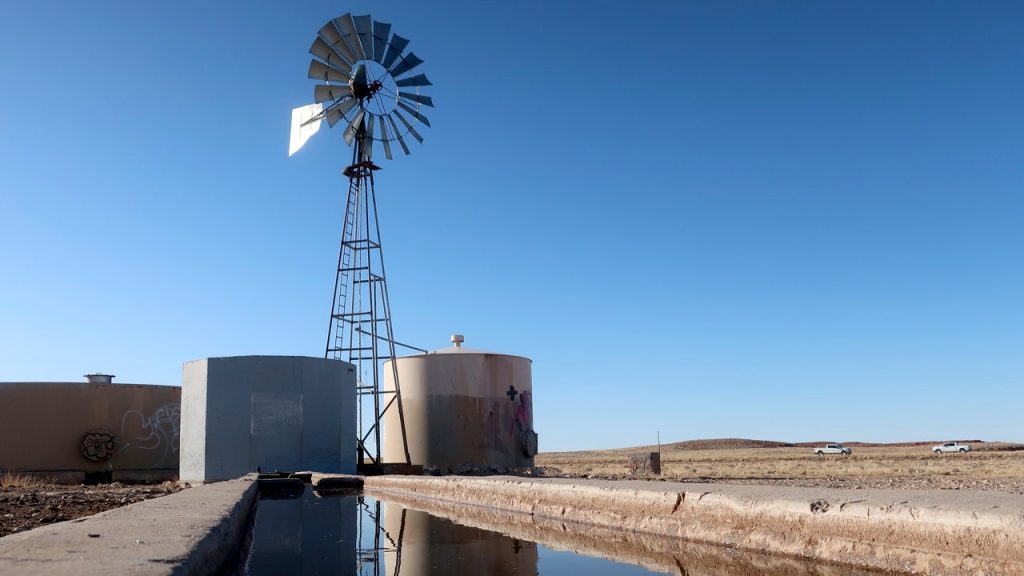The Navajo Nation Council has unanimously approved a proposed water rights settlement that is seeking more than $5 billion, which would make it the most expensive agreement enacted by Congress. The tribes involved, including the Navajo, Hopi, and San Juan Southern Paiute tribes, have been working for generations to secure water deliveries for their communities. The settlement aims to ensure water rights for these tribes in the drought-stricken Southwest, with nearly a third of homes in the Navajo Nation lacking running water. The council’s vote was a historic moment, acknowledging the gravity of the situation and standing to applause after casting a unanimous vote.
The settlement includes funding for a pipeline from Lake Powell, one of the largest reservoirs in the Colorado River system, on the Arizona-Utah border. This pipeline would deliver water to dozens of tribal communities in remote areas, addressing the lack of running water in many homes. The Navajo President plans to sign the settlement legislation as soon as it hits his desk, highlighting the long road it took to get everyone to the table and the next step of bringing the agreement to Congress. The tribes hope to close the deal quickly under a Democratic administration in Arizona and with Joe Biden as president, as worsening impacts from climate change and demands on the river have increased.
Tribes were left out of a landmark 1922 agreement that divided the Colorado River basin water among Western states, leading to the current battle for water rights. The settlement is an opportunity for the Navajo, Hopi, and San Juan Southern Paiute tribes to secure a reliable water supply and infrastructure for future generations, fulfilling their covenant to live as stewards of the land. Without a settlement, the tribes would face uncertainty in court, as the federal government is not bound by treaties to secure water for them. The settlement would also benefit Arizona as a whole, providing certainty in water allocation as the overall supply diminishes.
Arizona water officials see the leasing authority as a key component of the settlement, allowing tribes like the Navajo and Hopi to lease water within the state and potentially deliver it through an existing canal system serving cities like Tucson and Phoenix. The unique allocation of water in the Colorado River’s Upper and Lower Basins means that Arizona has a stake in finding solutions to the water scarcity issue. Congress will have the final say on the proposed settlement, which would provide crucial funding for infrastructure projects and address the decades-long battle for water rights among the tribes in the Southwest.
Overall, the proposed water rights settlement is a significant step towards securing water for the Navajo, Hopi, and San Juan Southern Paiute tribes, who have been fighting for generations for their communities’ water needs. The settlement includes funding for a pipeline to deliver water to remote tribal communities without running water, addressing a critical issue in the region. The settlement also represents a milestone in the ongoing battle for water rights in the Colorado River basin and is seen as an opportunity for the tribes to secure reliable water supplies for future generations.


